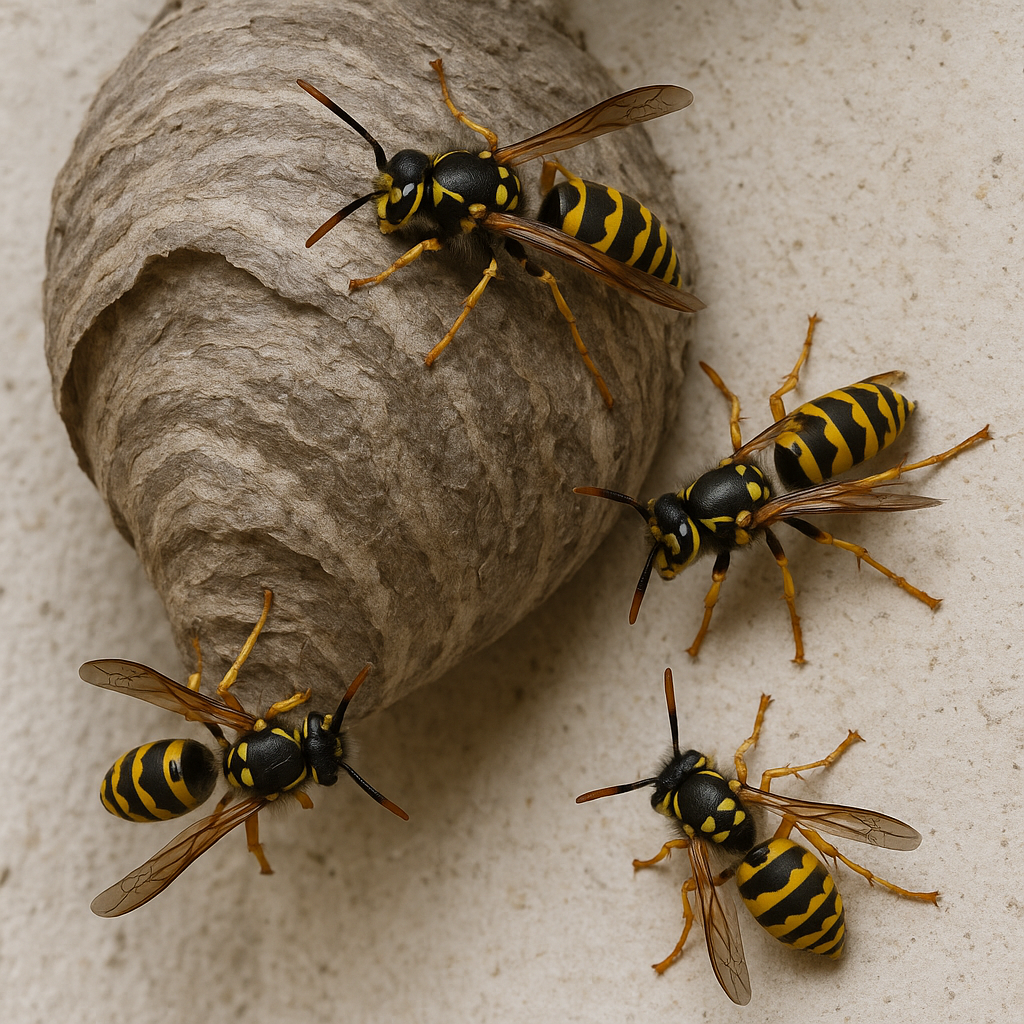Wasps and hornets tend to become more aggressive in late summer, and their stings can be painful or even pose a risk to your health.
We offer expert treatment for both residential and commercial properties, utilising a high-quality insecticide that is applied directly to the nest or the entry point. You’ll typically notice a reduction in activity within hours, with complete eradication usually achieved within 48 hours.
Your satisfaction is assured — if you still observe activity after 7 days, we will return at no additional cost until the issue is resolved.
Call today to schedule your treatment!
From £70
Wasps
About Wasps
Q: Why do I have wasps around my home or business?
A: Wasps are often attracted to food sources, sweet substances, and nesting sites such as roof eaves, sheds, lofts, and wall cavities. During late summer, their activity increases as they search for sugary foods.
Q: Are wasps dangerous?
A: Yes. Wasps can sting multiple times and their stings are painful. For some individuals, stings can trigger severe allergic reactions (anaphylaxis), which require immediate medical attention.
Q: How can I tell if I have a wasp nest?
A: Common signs include increased wasp activity around your property, especially in a specific area. You may see wasps entering and exiting through small gaps, holes, or rooflines. Nests are often hidden but can also appear as grey papery structures in lofts, trees, or outbuildings.
Q: Should I try to remove a wasp nest myself?
A: No. Wasps can become aggressive when threatened, leading to multiple stings. It is best to contact a professional pest control service to safely and effectively remove the nest.
Q: What’s the difference between wasps and bees?
A: Wasps have smooth bodies and are generally more aggressive, while bees are hairy and play an essential role in pollination. Bees are protected in many cases and should not be harmed unnecessarily.
Q: How do you treat a wasp problem?
A: A professional will locate the nest, apply an appropriate insecticidal treatment, and ensure the colony is destroyed. In most cases, the nest becomes inactive within 24–48 hours.


